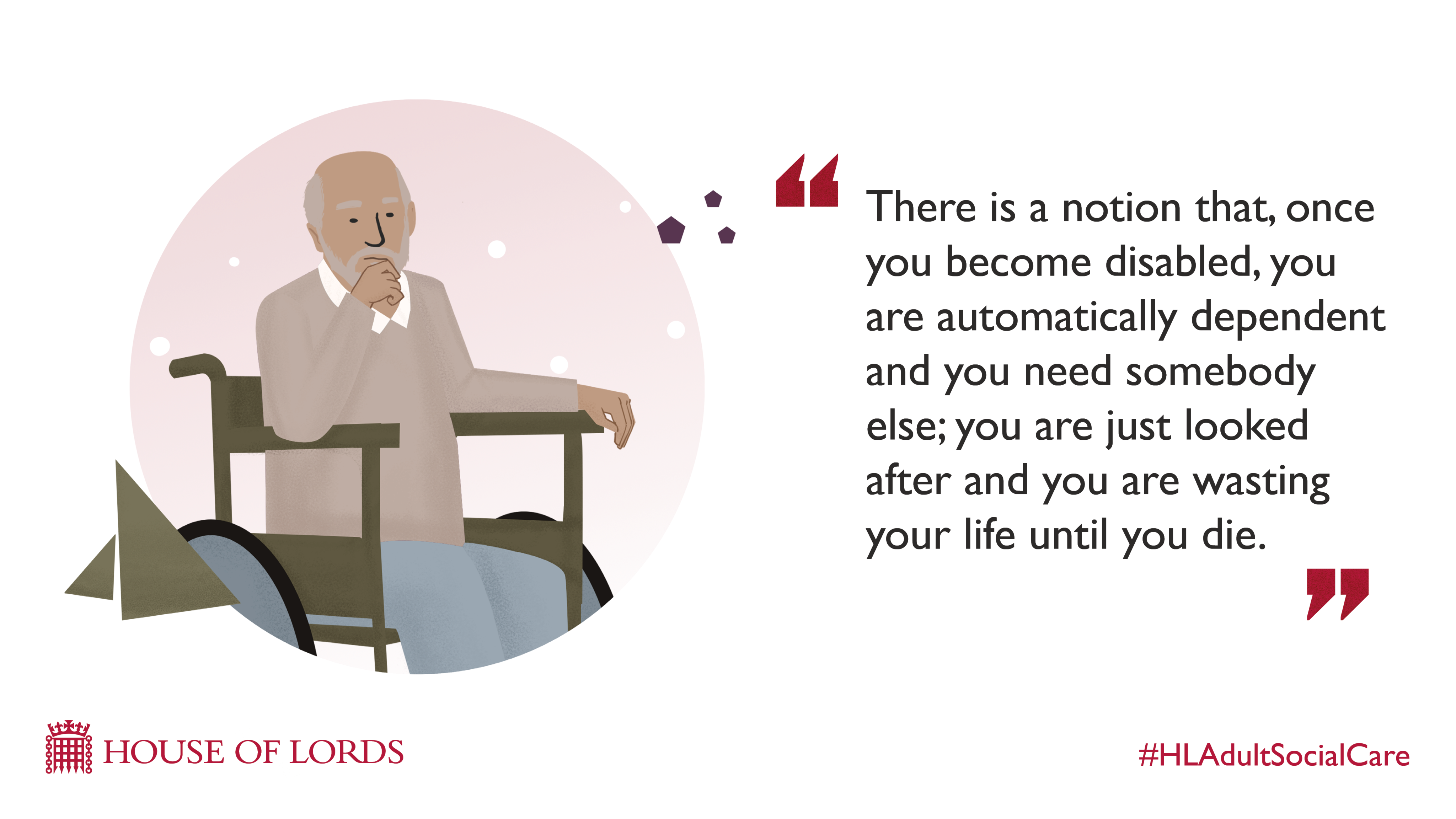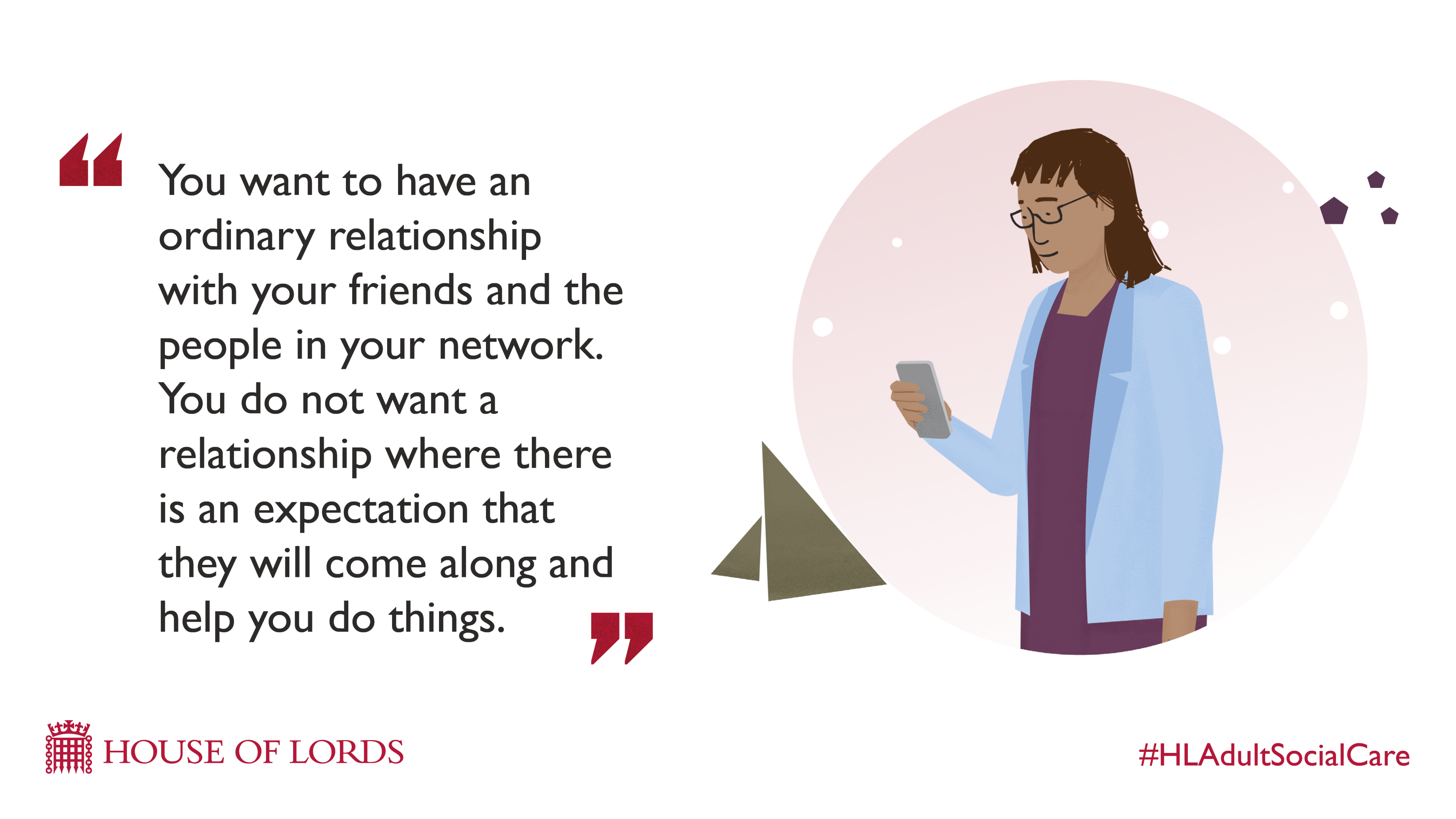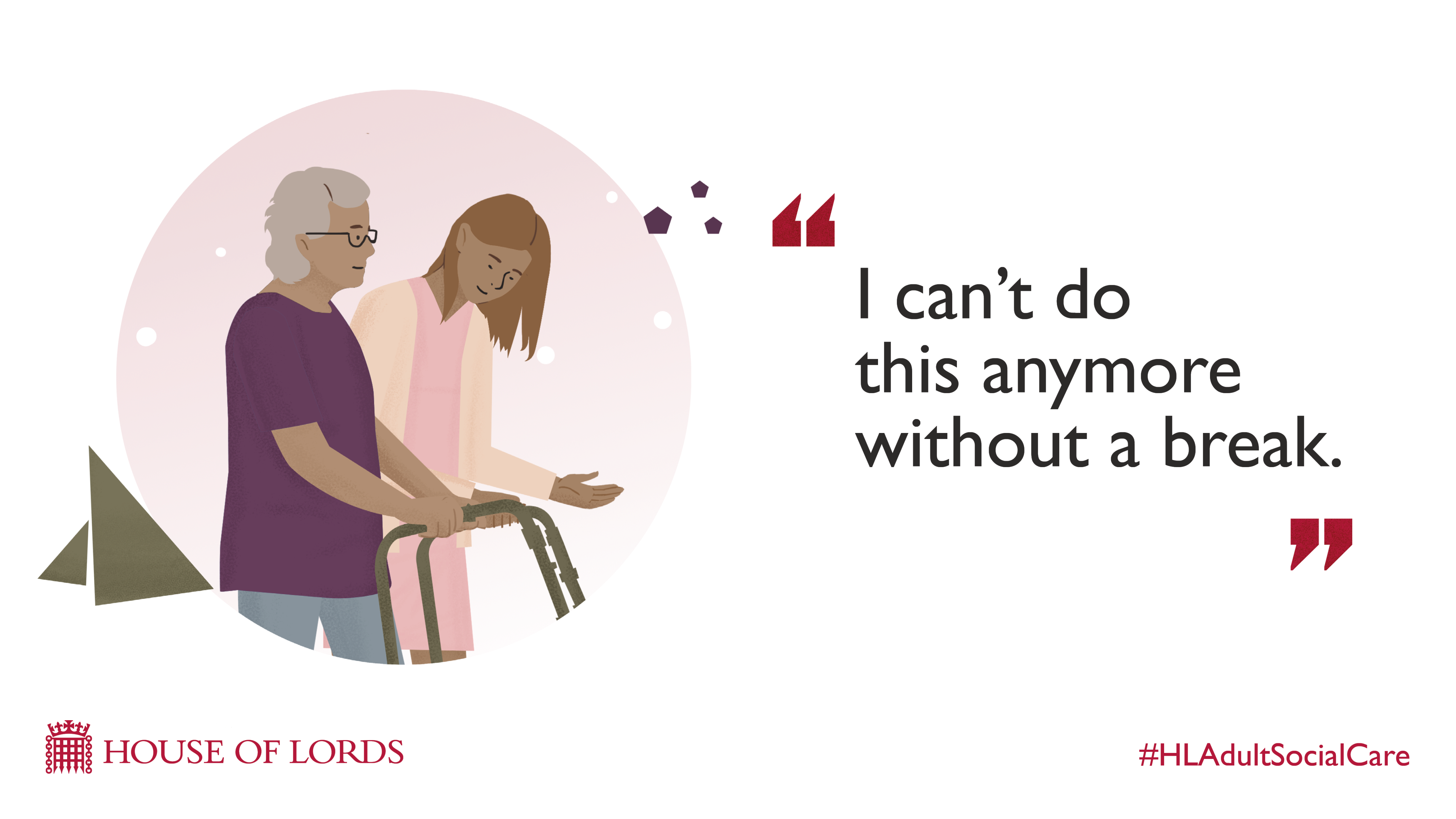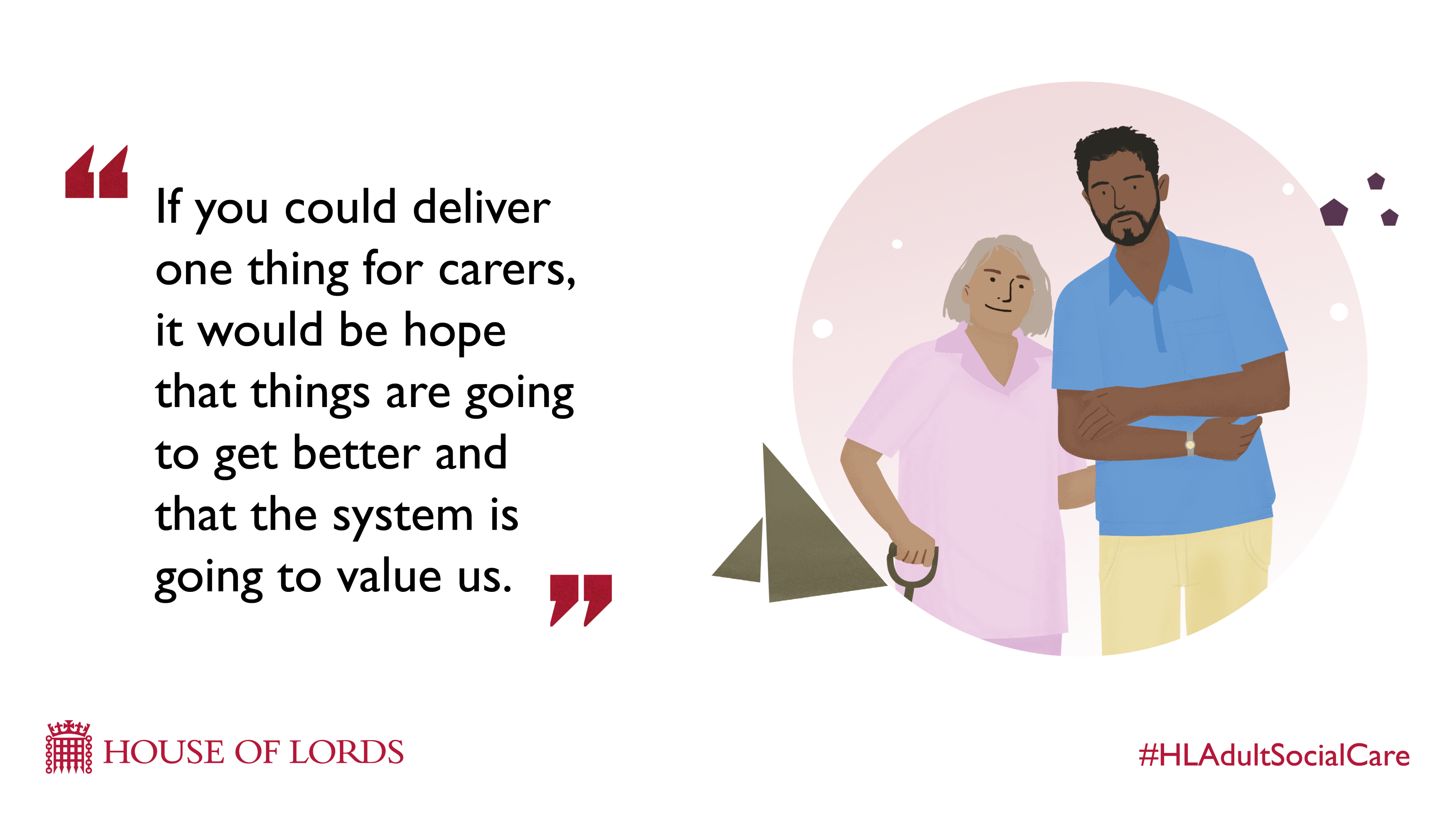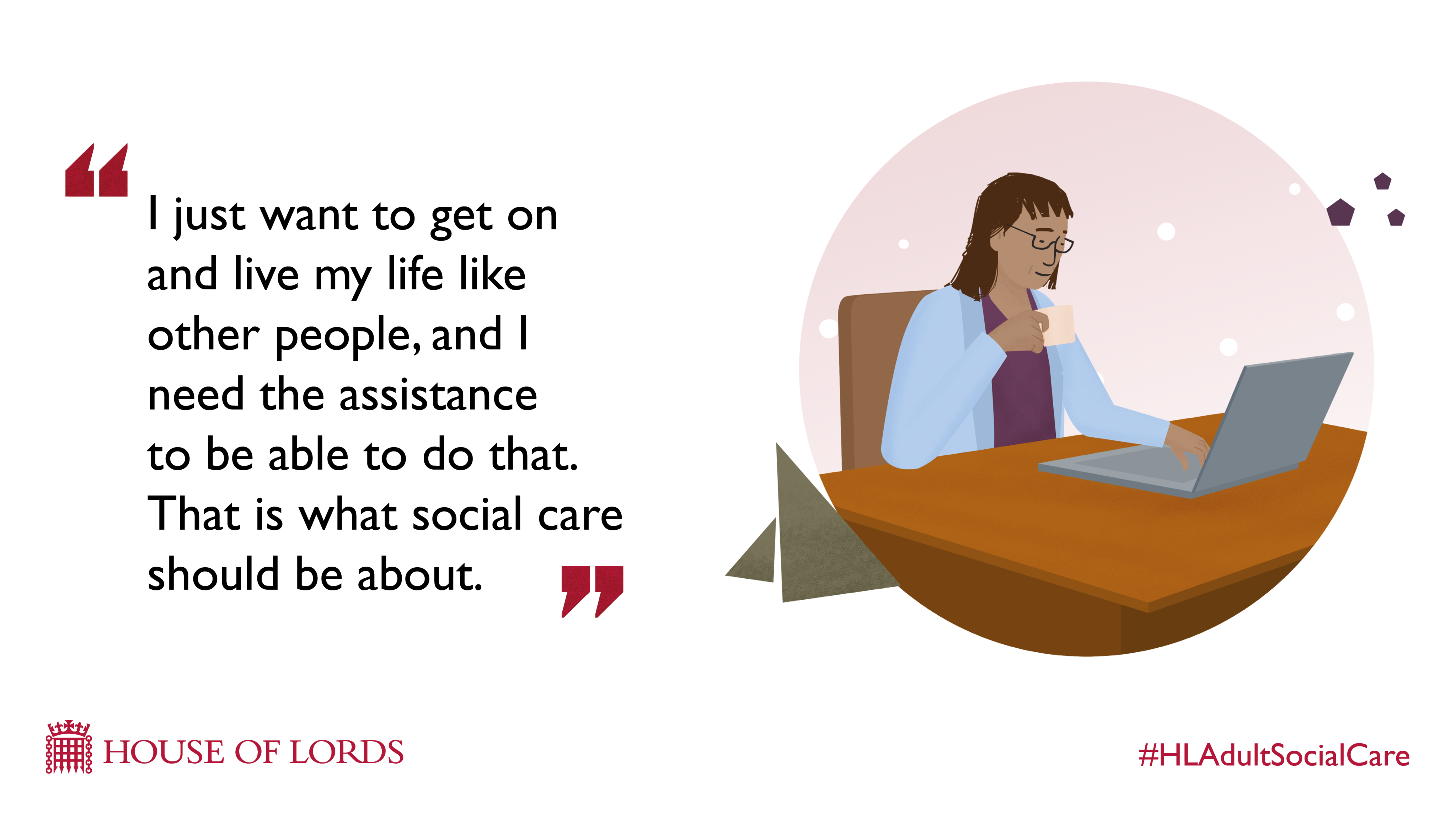“A gloriously ordinary life”
A new deal for adult social care in the UK?

The assumption that families will provide support for each other

Our social care system is largely based on the assumption that families will simply “step up” to provide unpaid care for each other. Estimates show that unpaid care could have a value of up to £132 billion per year.
But this assumption is unfair, both on people who draw on care and on unpaid carers.
This is unsustainable. Instead, we want to see an adult social care system that does not rely on the expectation that families will provide unpaid care and support for each other.
This means that people should be able to choose what care they receive and from whom — and support should be available equally, whether they wish to draw on unpaid care, on paid care, or on a mix of both.
The reality of life for unpaid carers
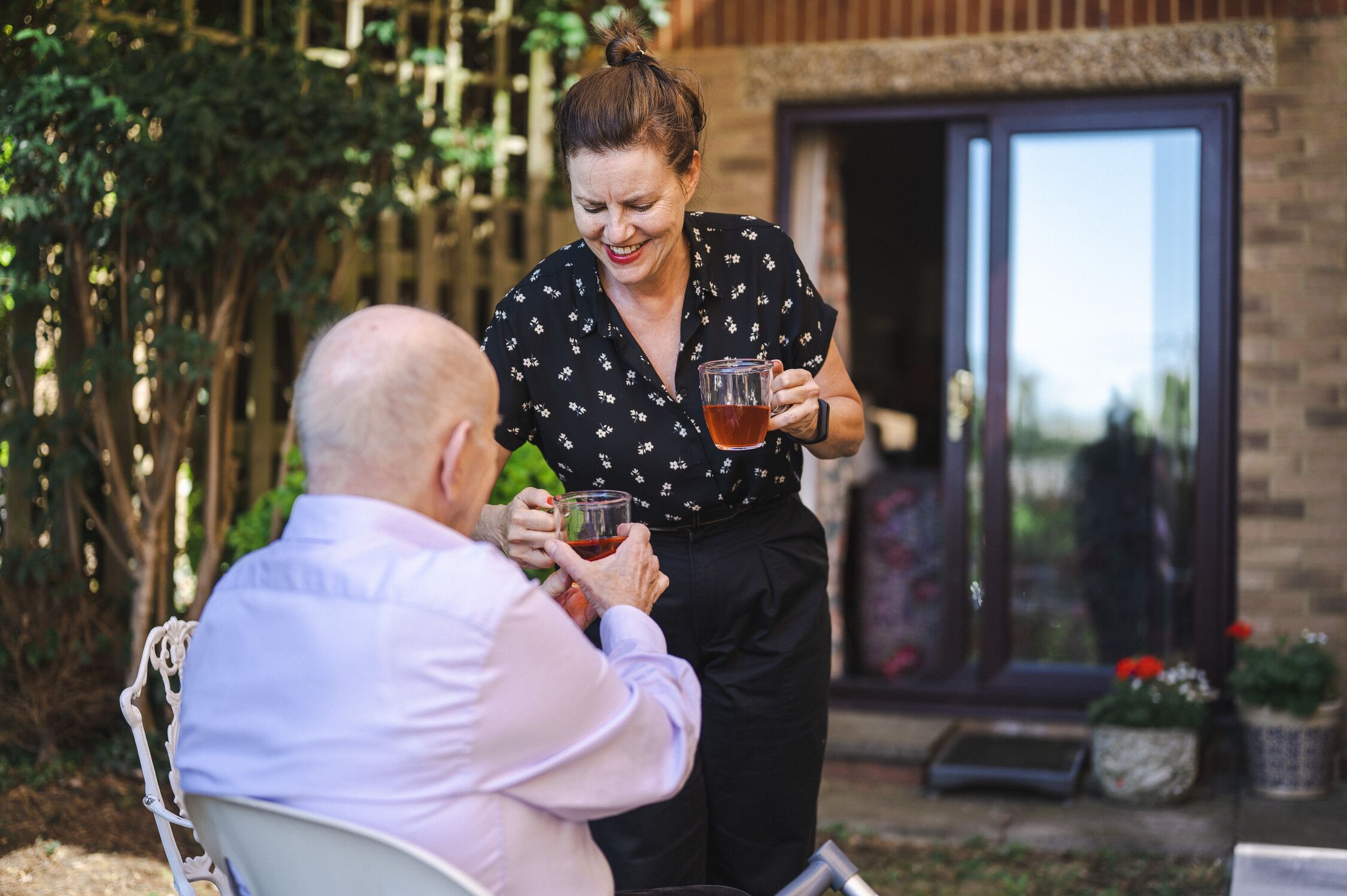
The expectations that families will provide care have a huge impact on the lives of unpaid carers.
Carers are physically, emotionally and financially exhausted by the pressure to provide support that is placed on them.
They often have to give up their own lives to care, without any recognition or formal support.
This can’t be right. The social care system cannot continue to rely on an invisible workforce that is at breaking point.
We want to see a situation where, if it is a person’s wish to involve an unpaid carer, there is appropriate support from the Government to ensure that the unpaid carer and the person who draws on care can both thrive.
This support should come in the form of better financial compensation, access to short breaks, and more flexibility for carers to juggle their work and caring duties.
Find out more
We have made our recommendations to the Government and it has two months to respond to our report.
Read the full report on our website.
Find out more about our inquiry and our committee.
Follow us on Twitter on @HLAdultCare and use the hashtag #HLAdultSocialCare for updates and to join the conversation.

